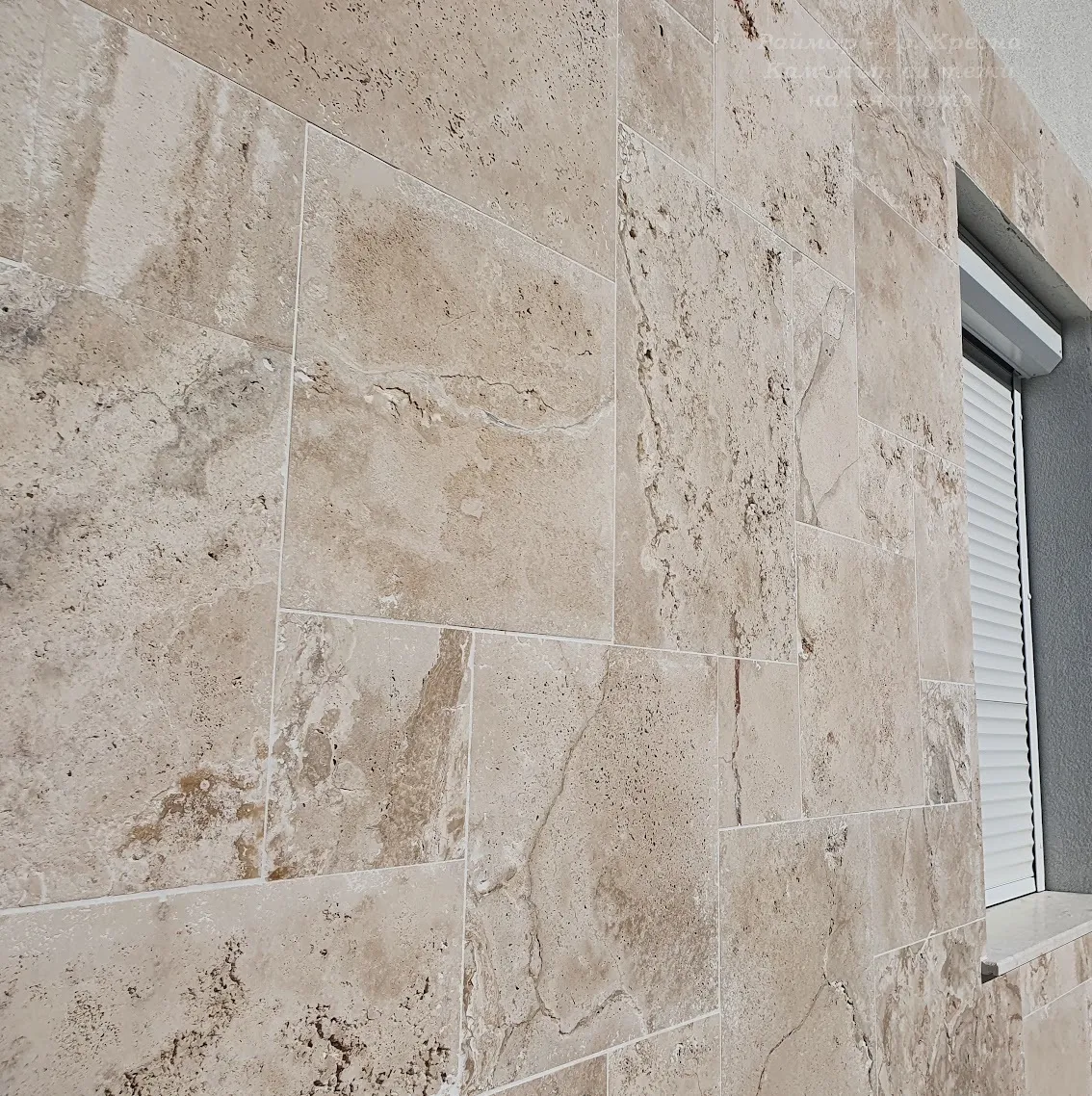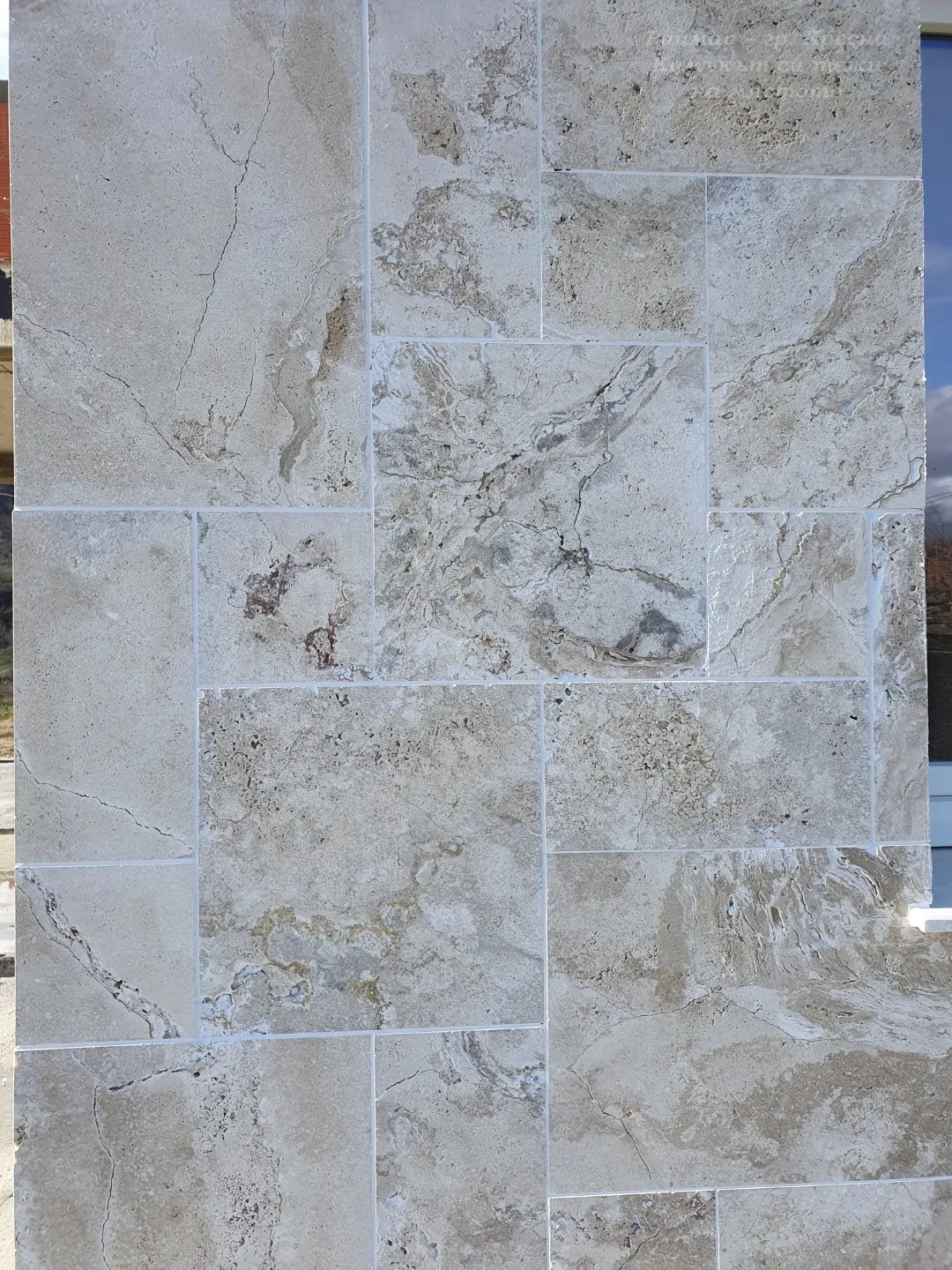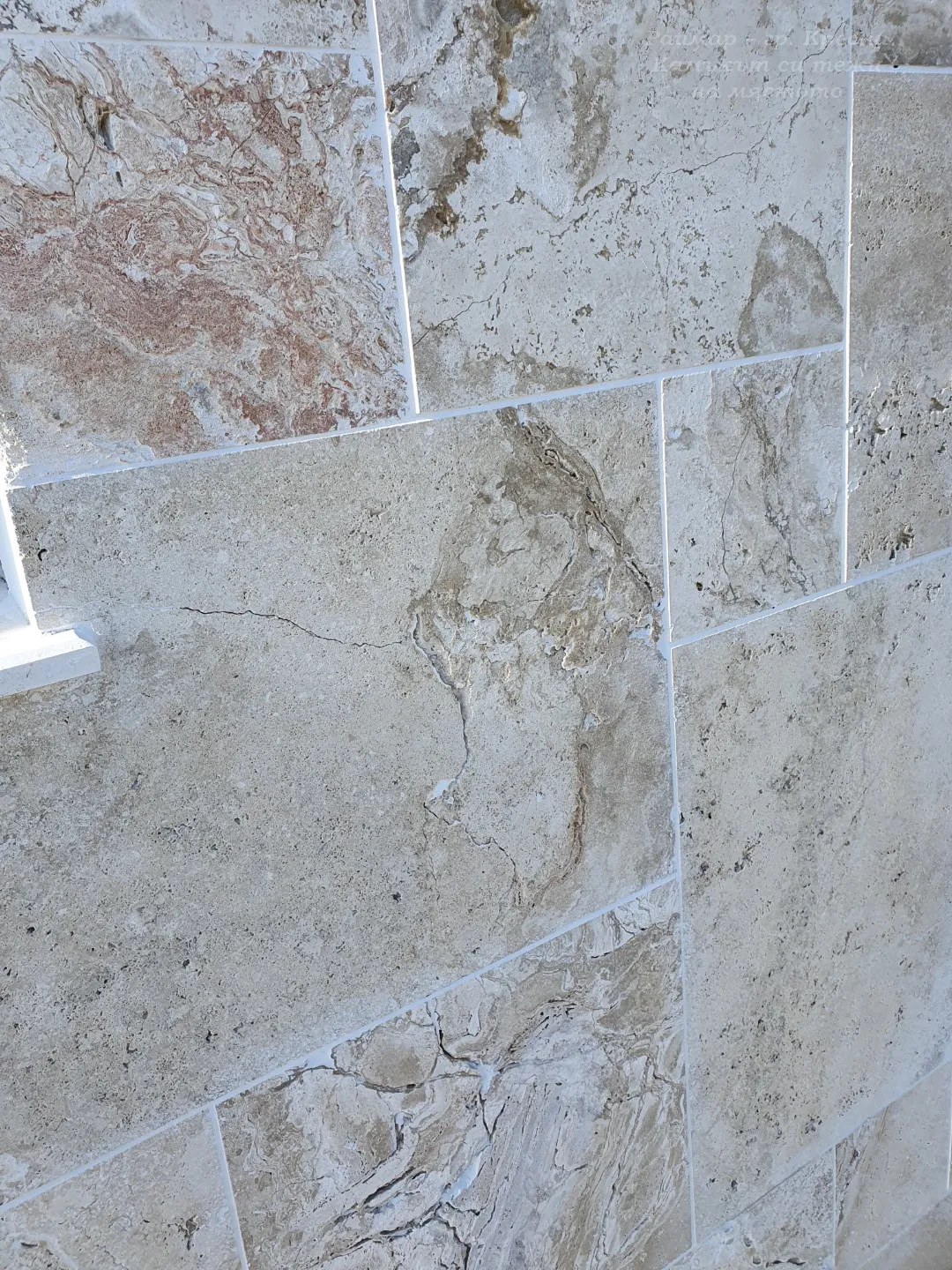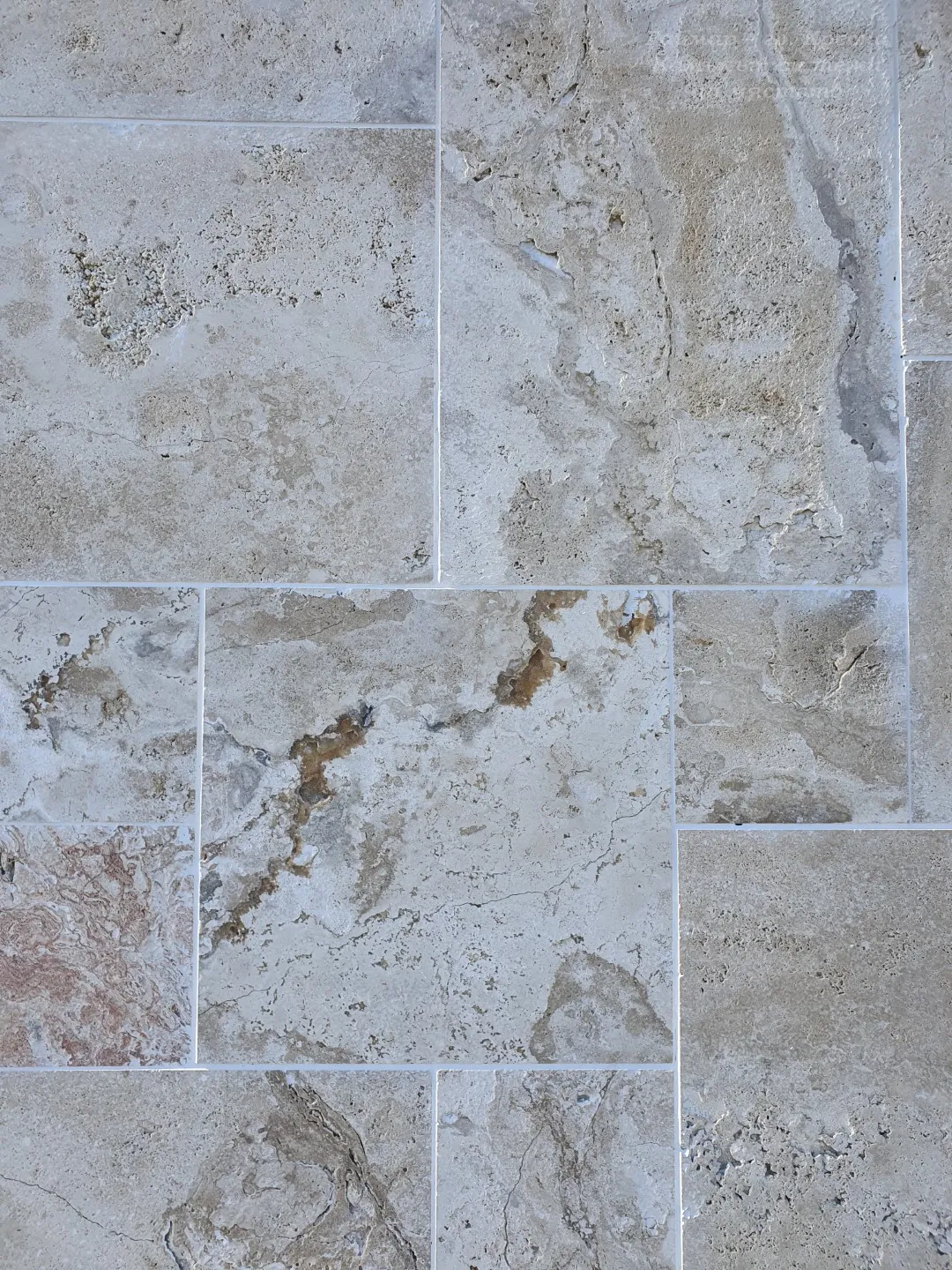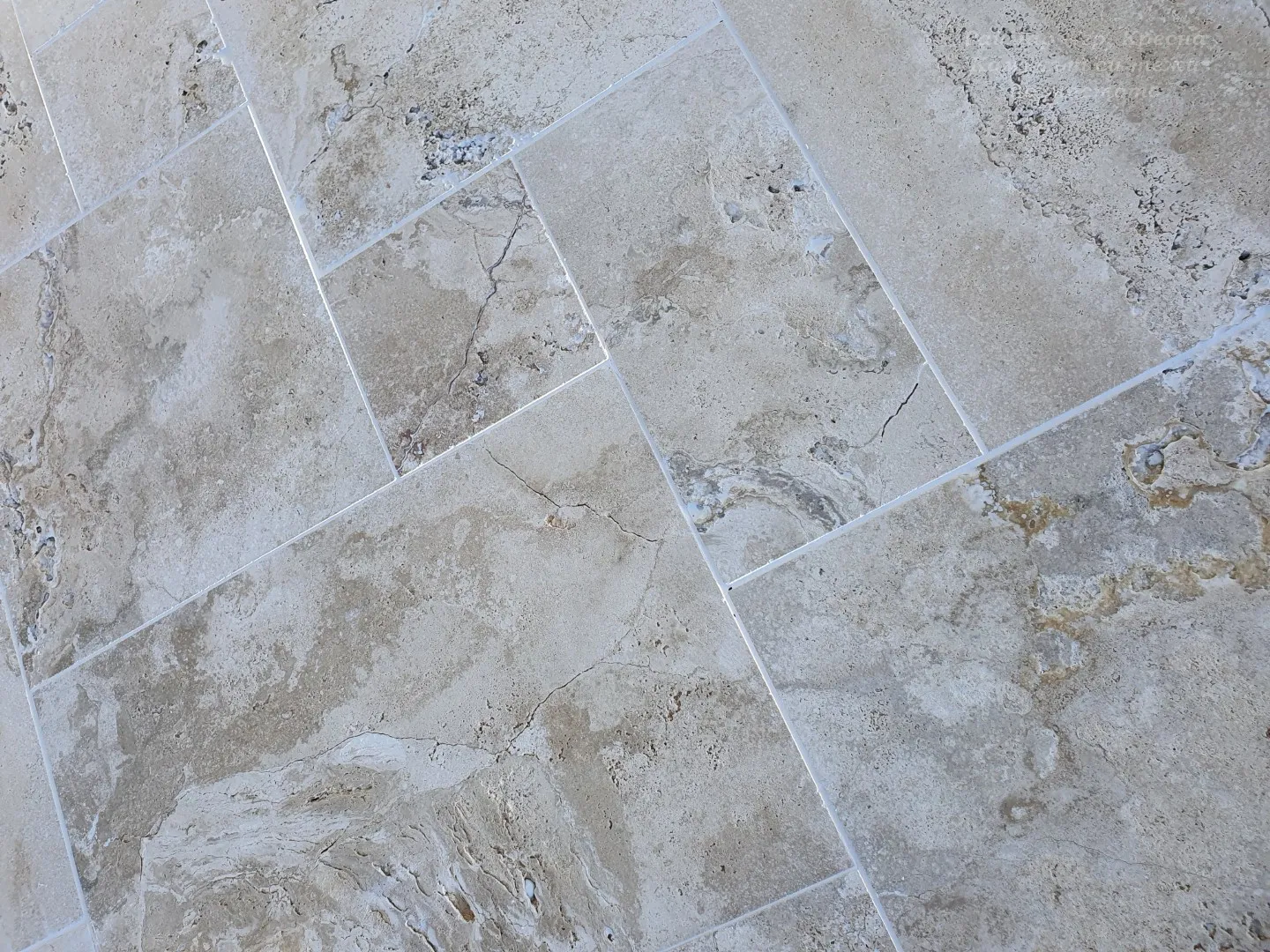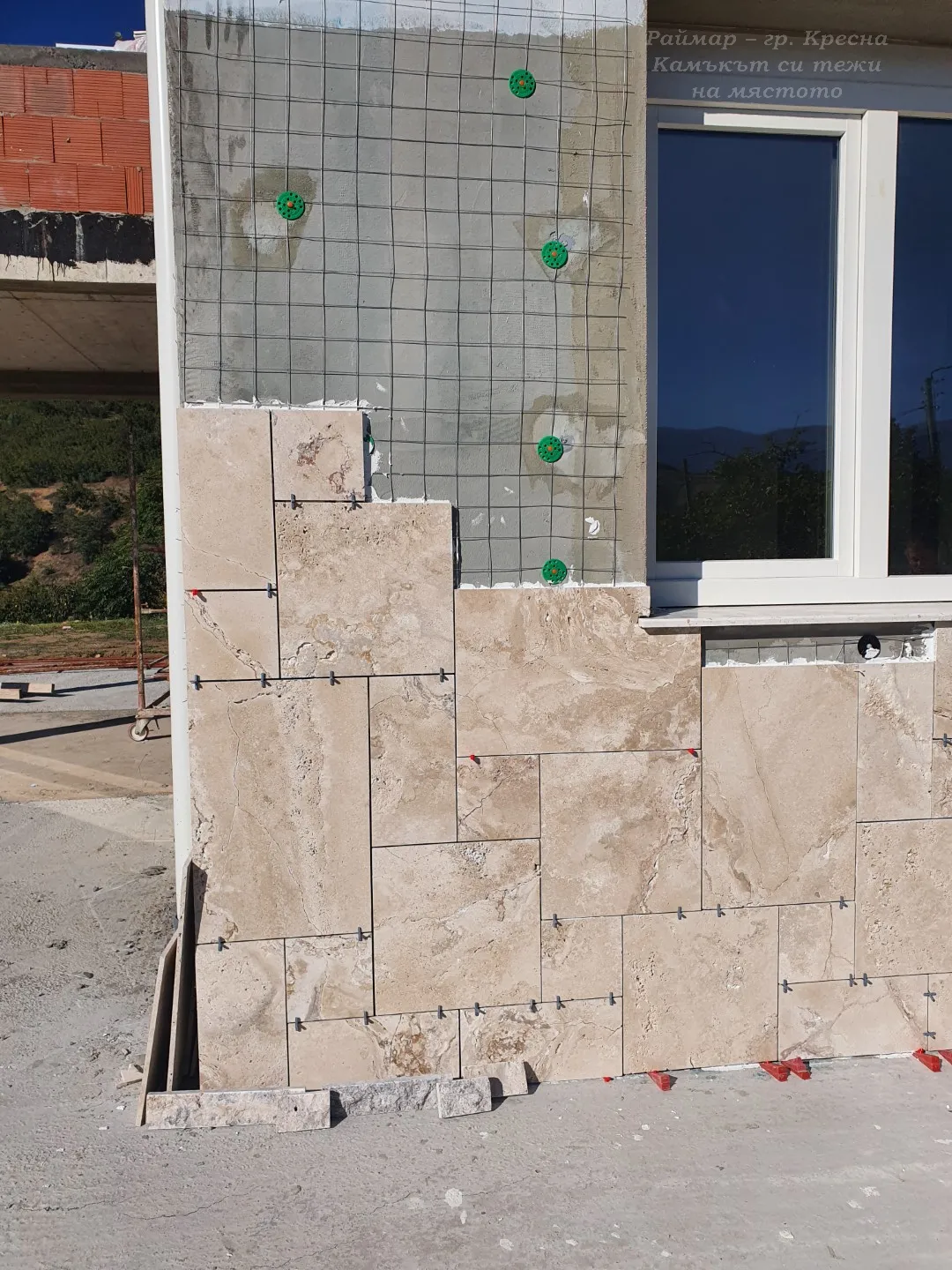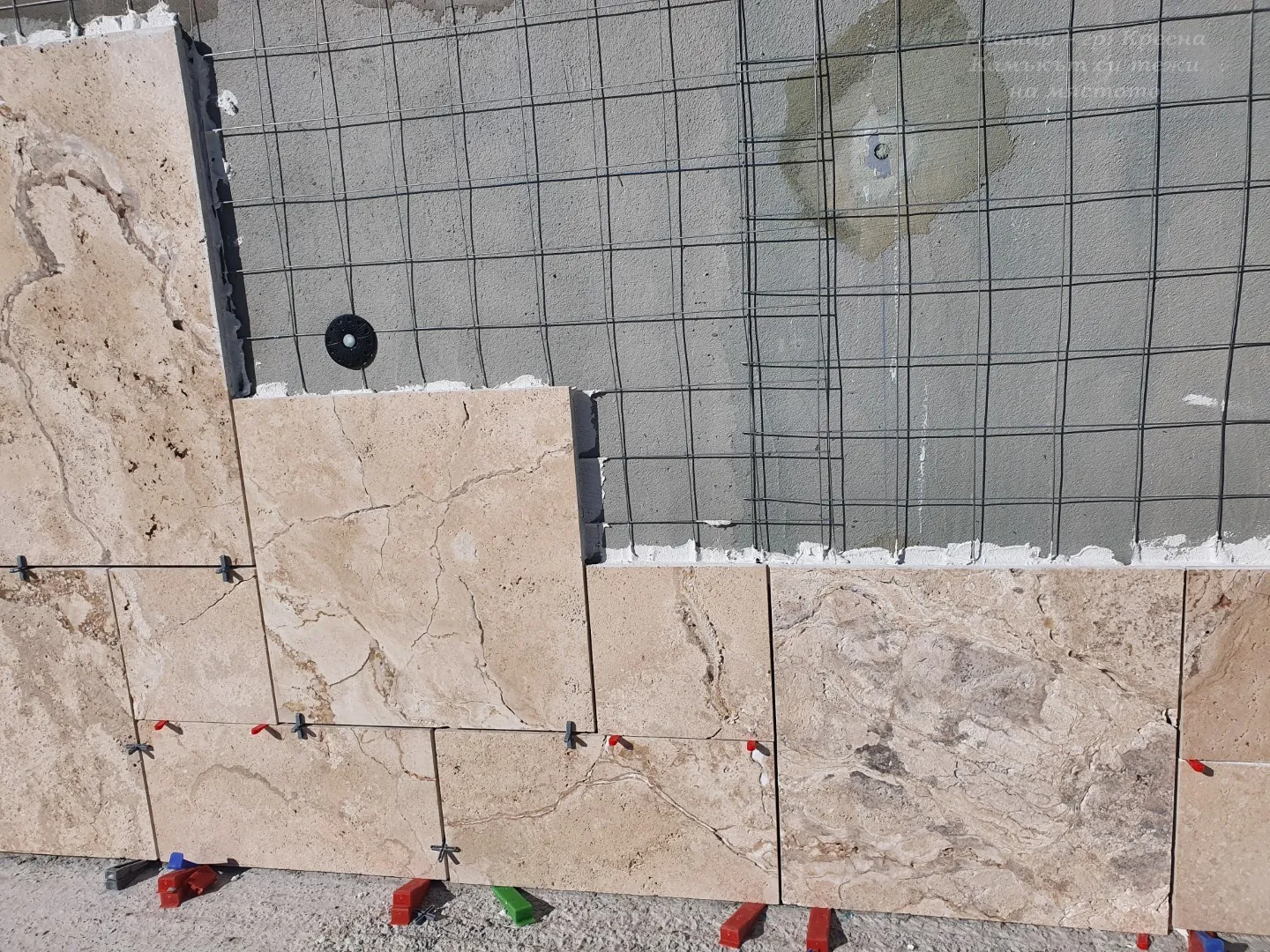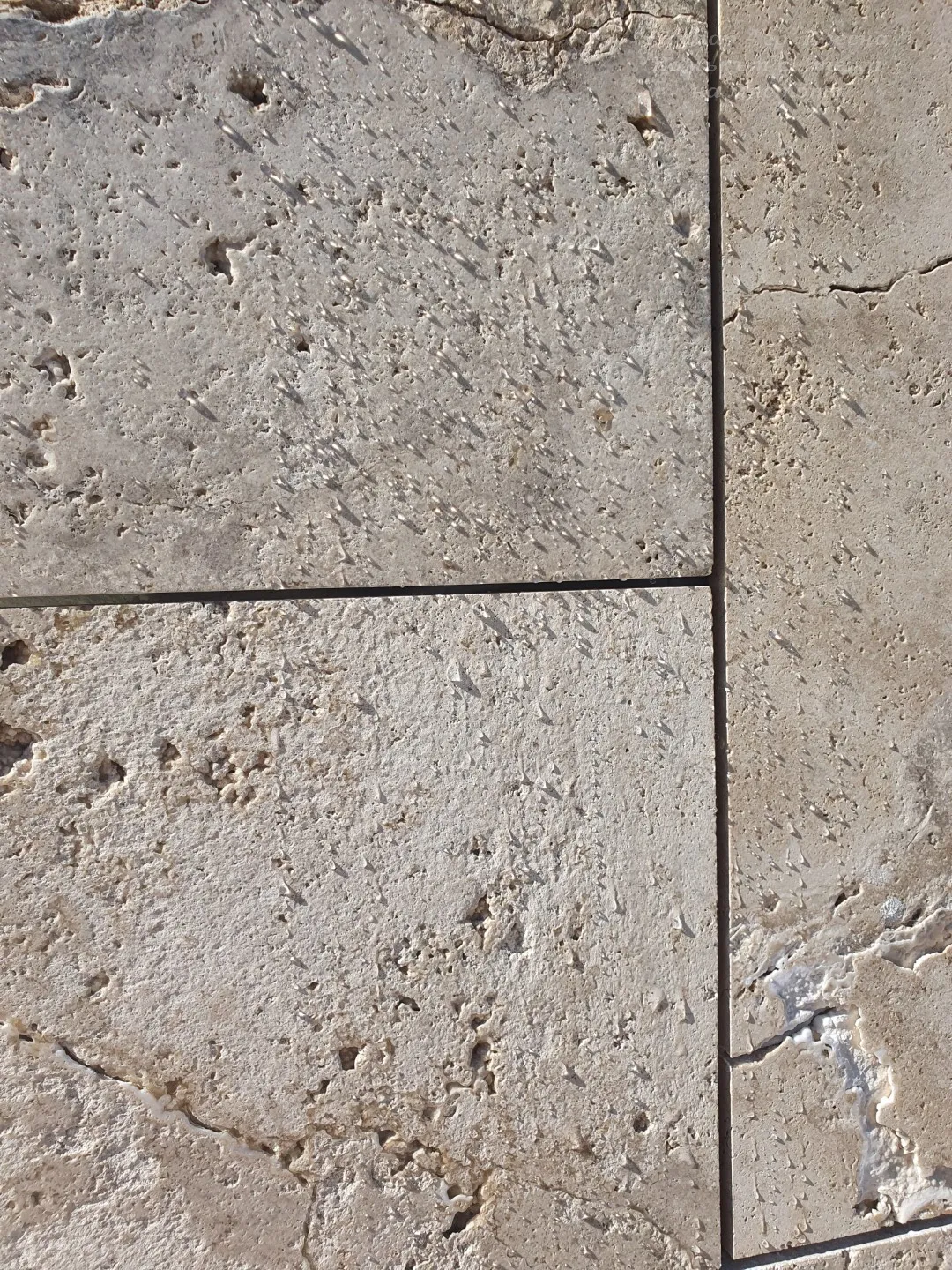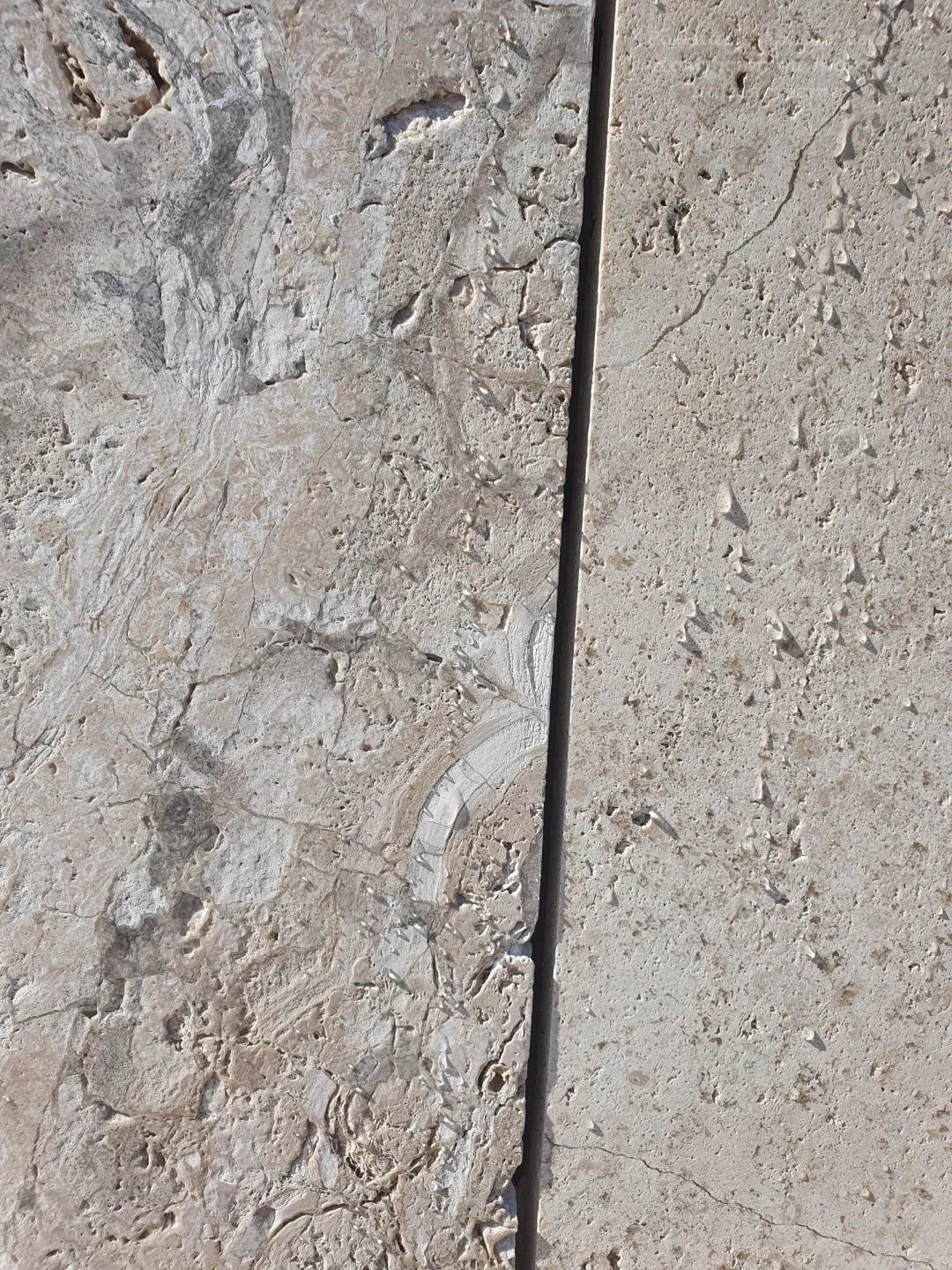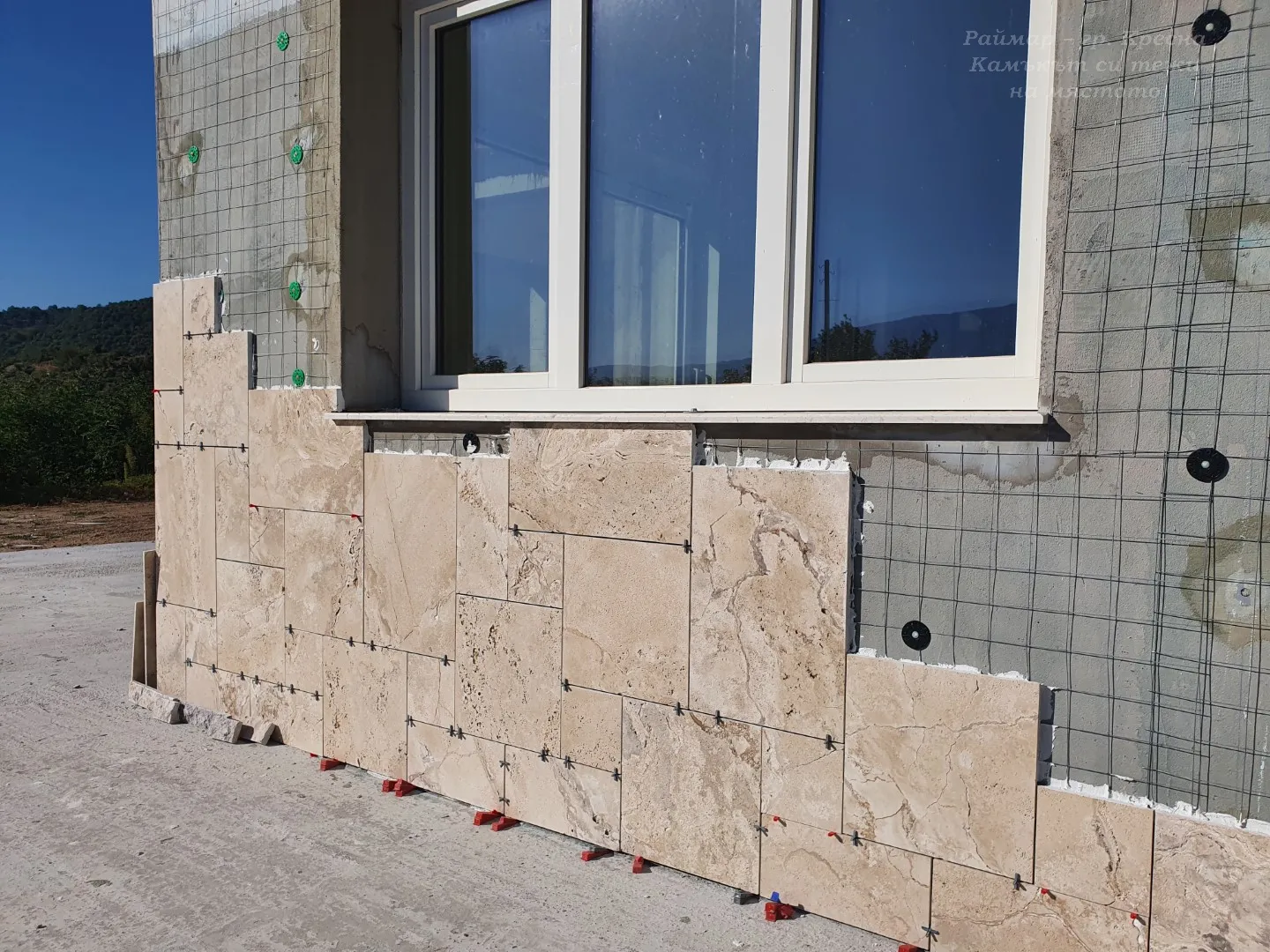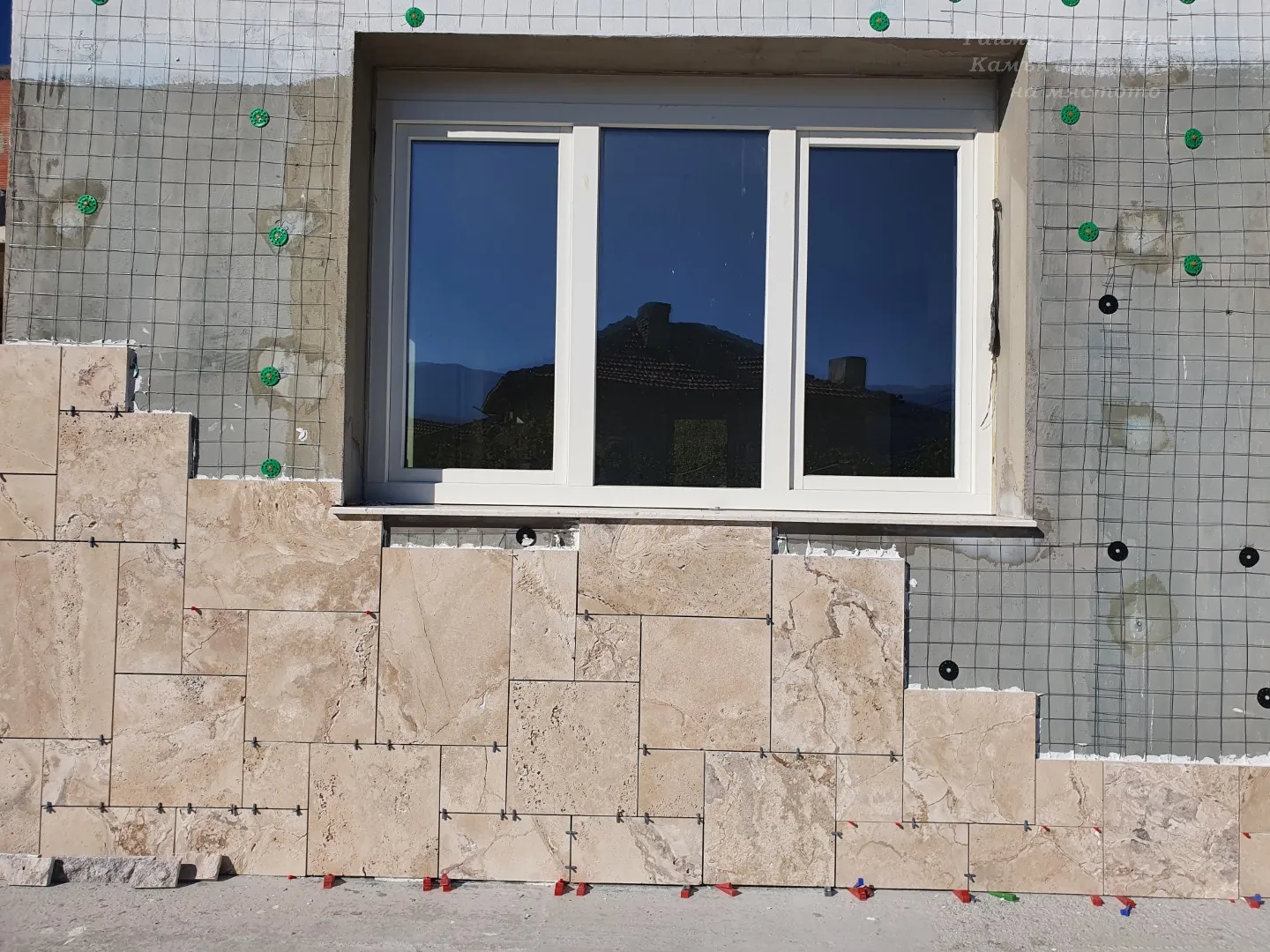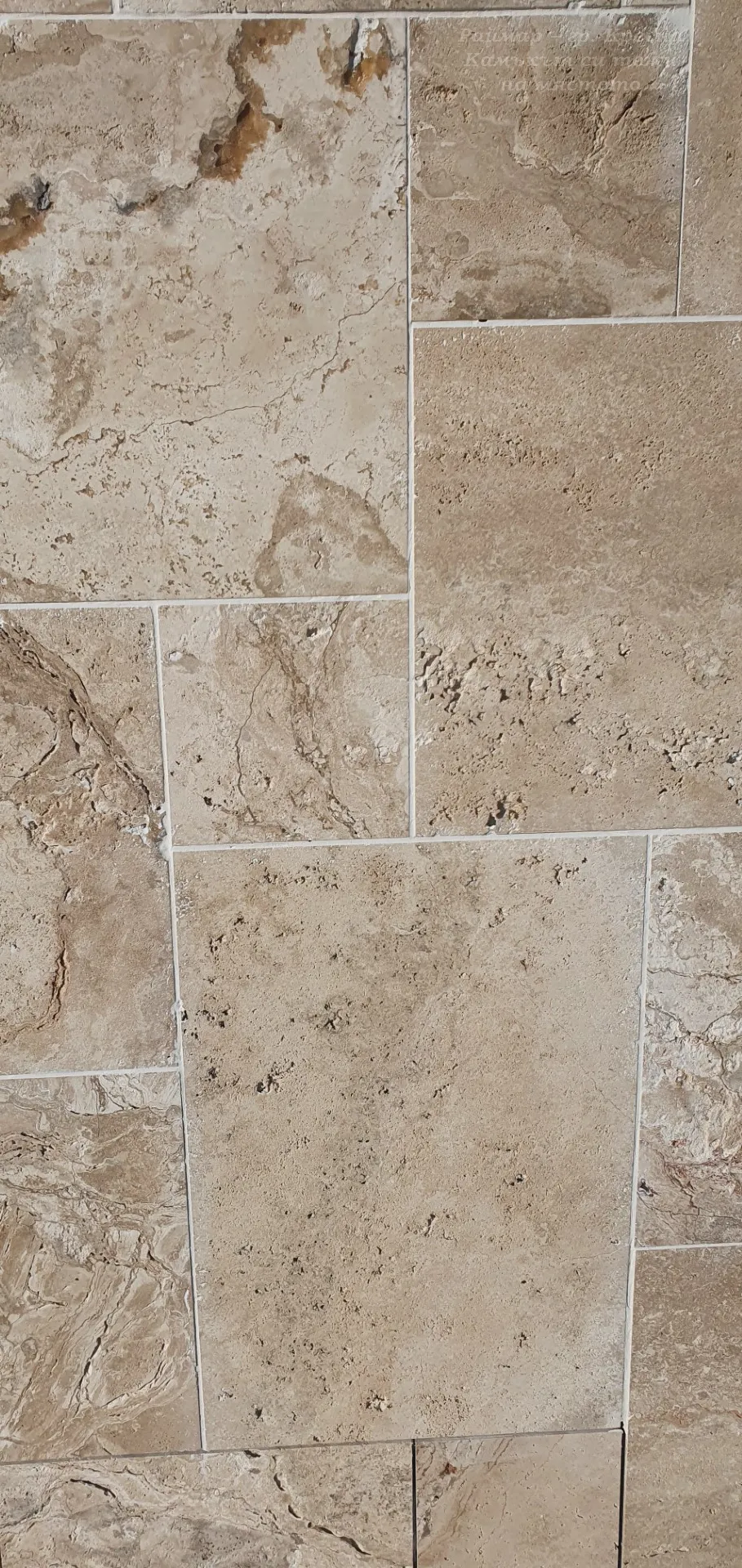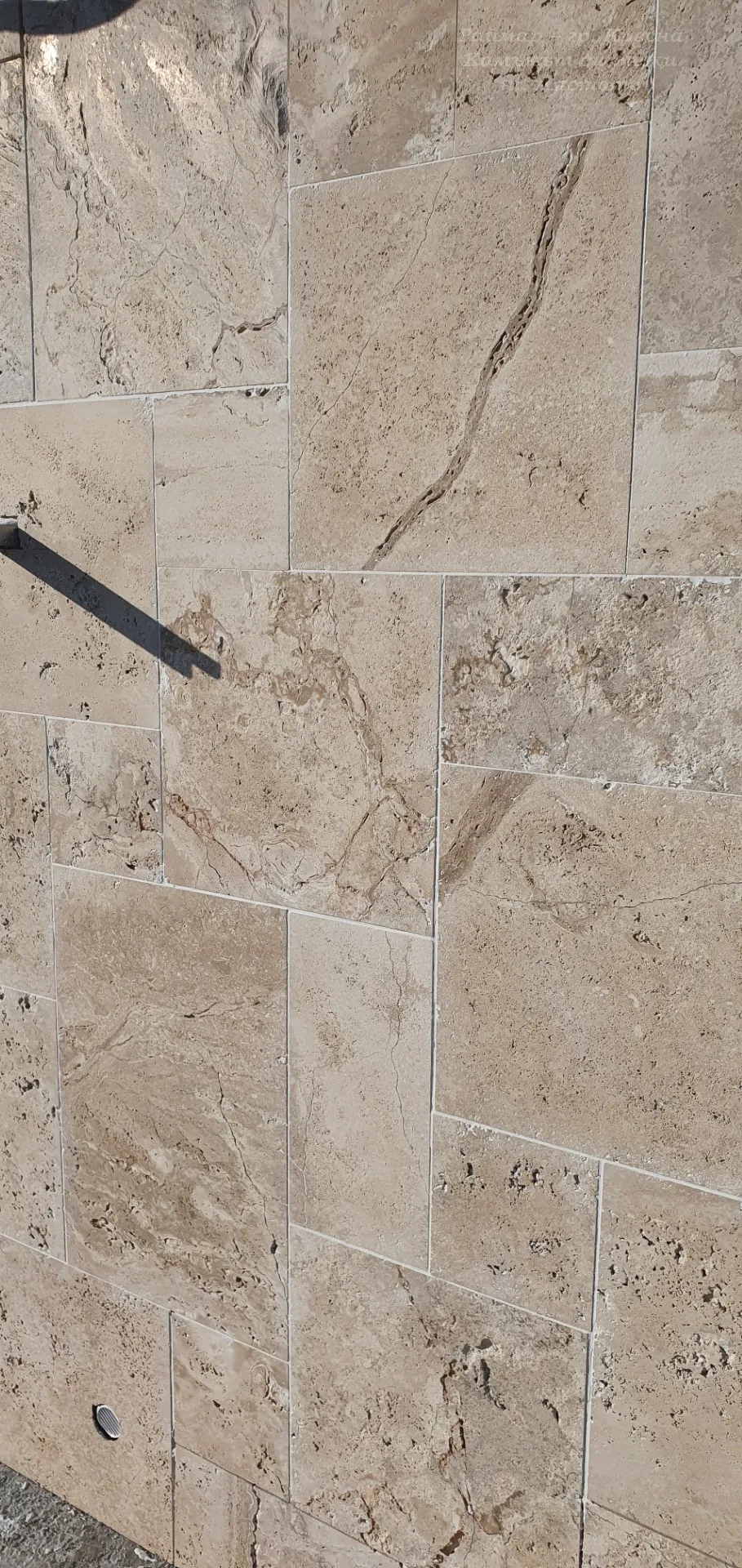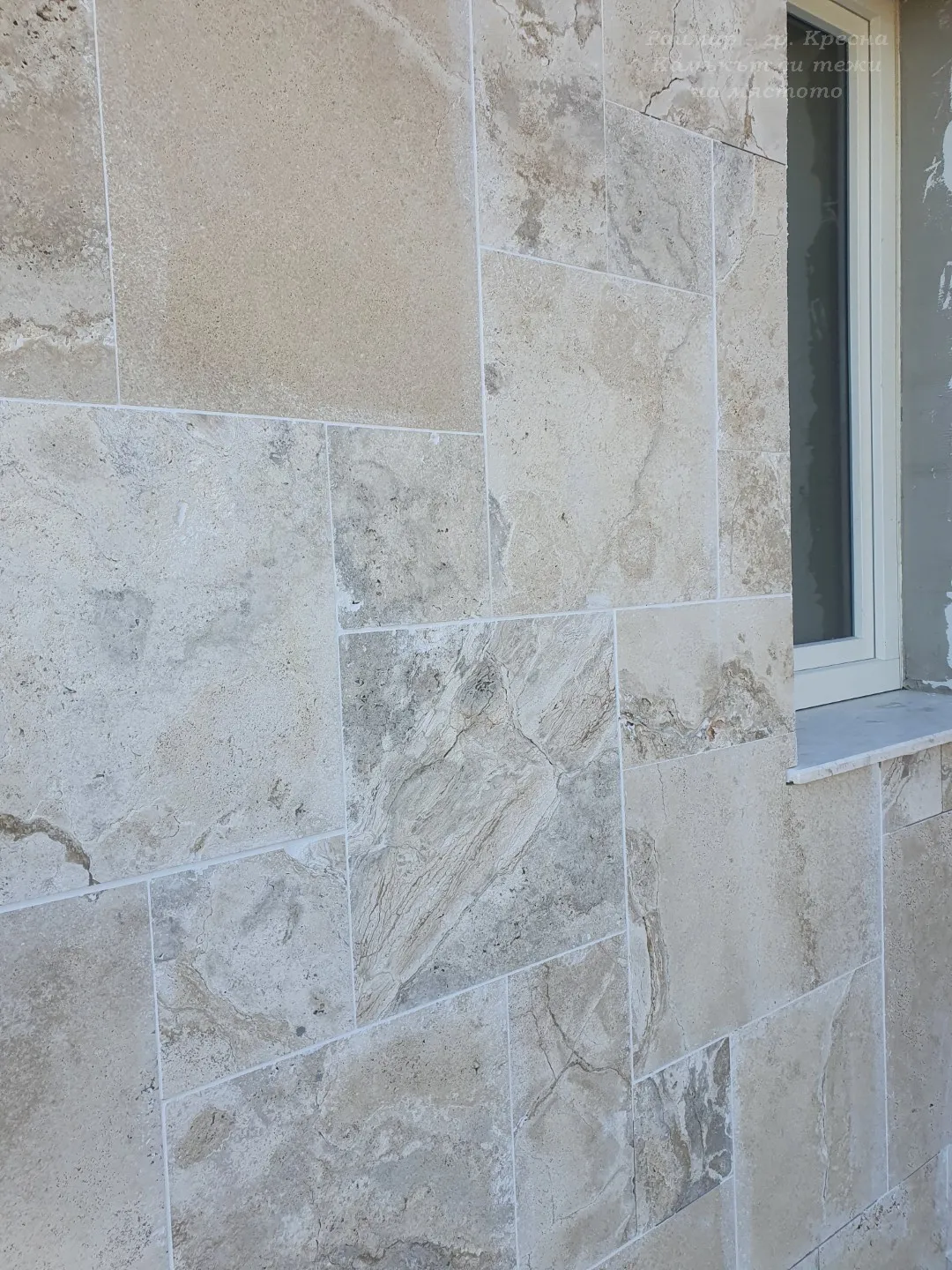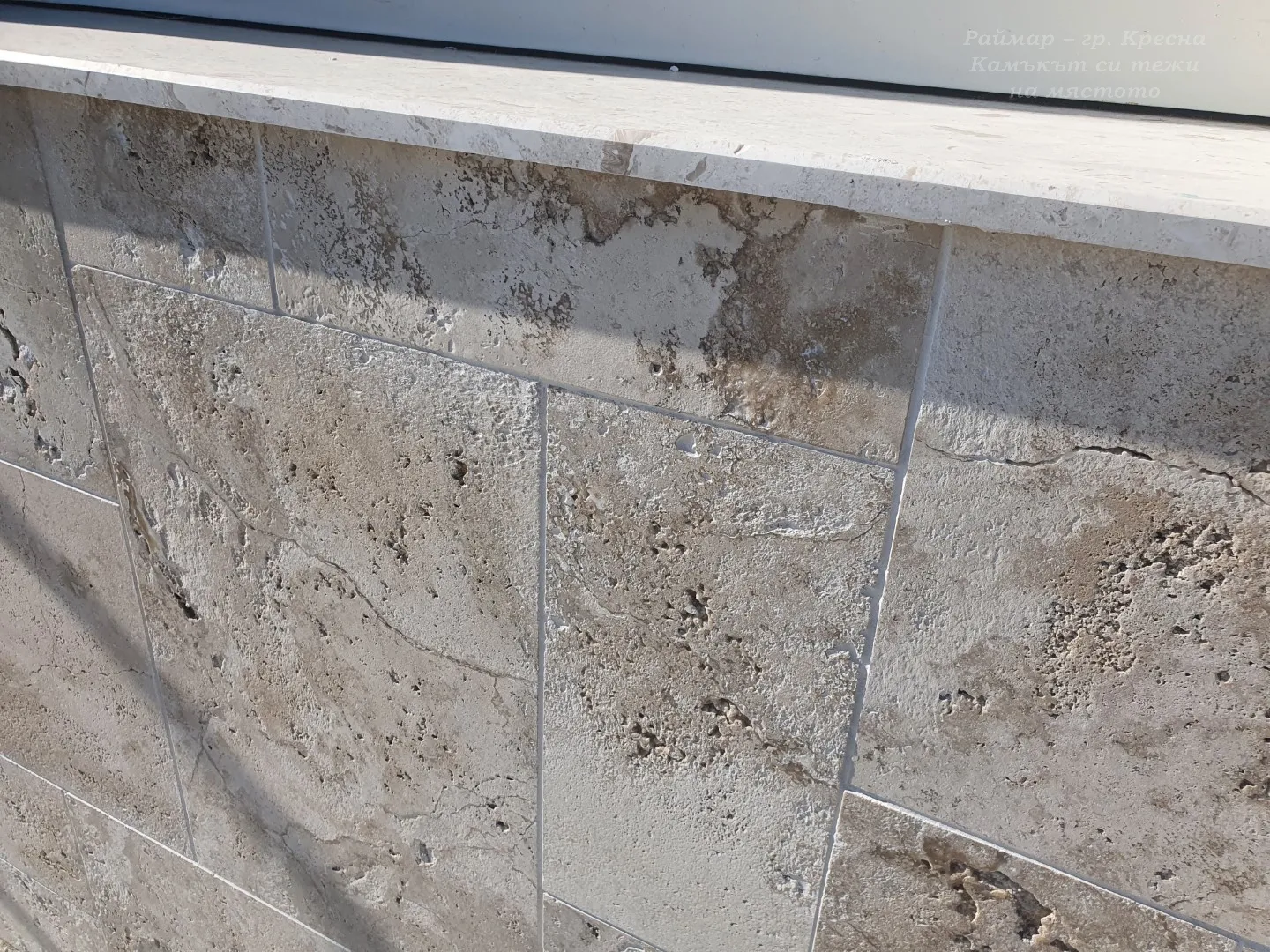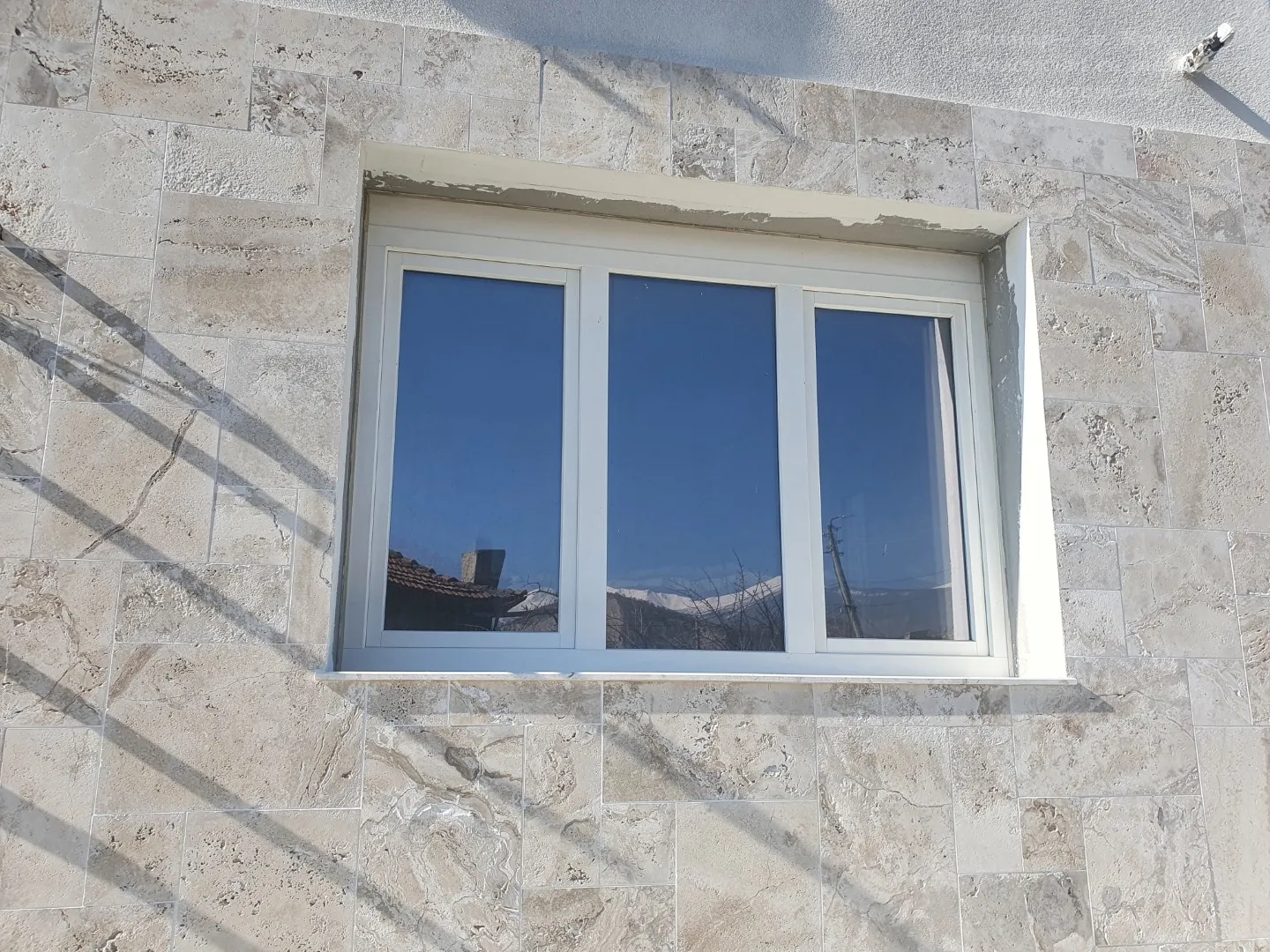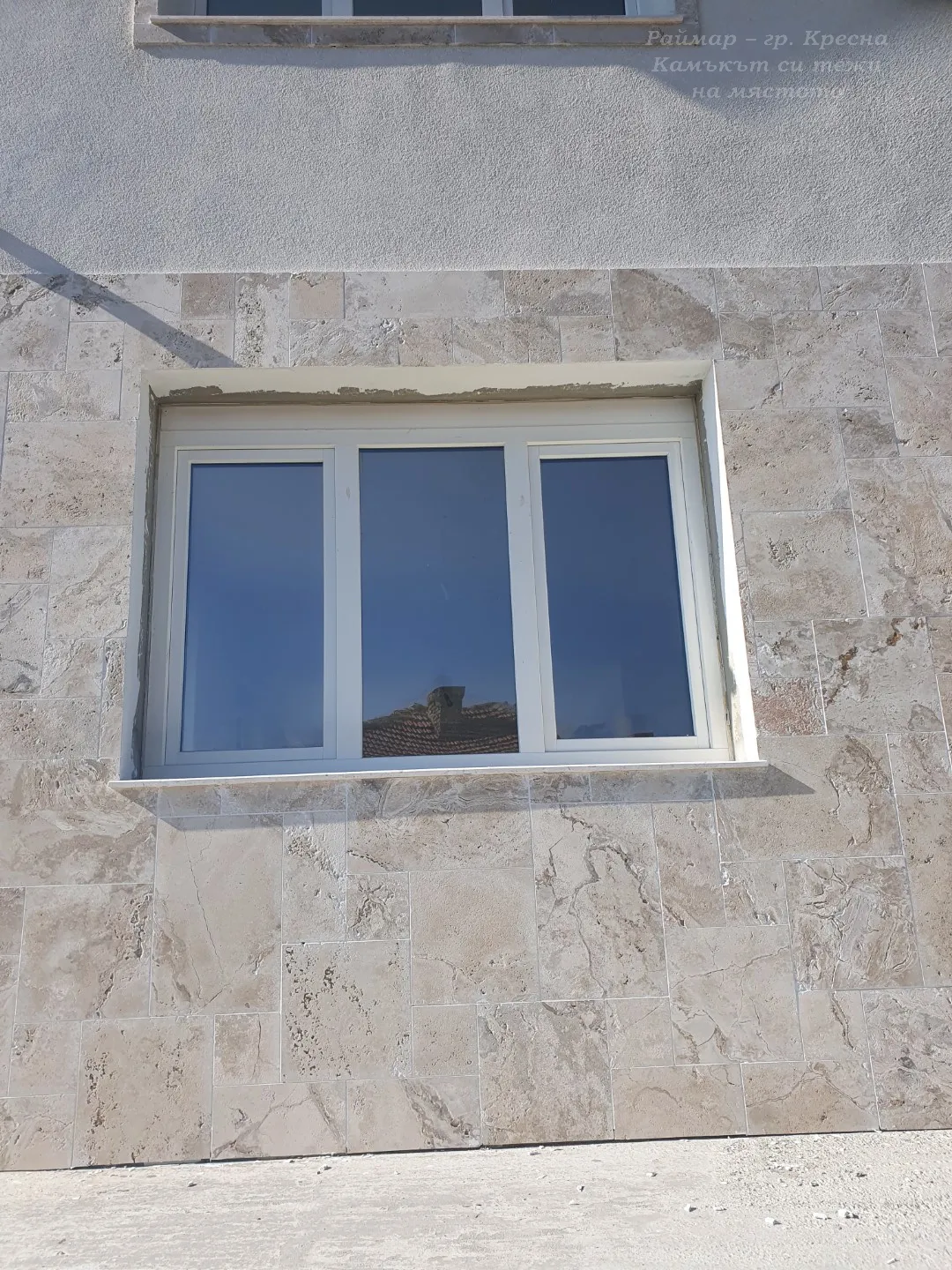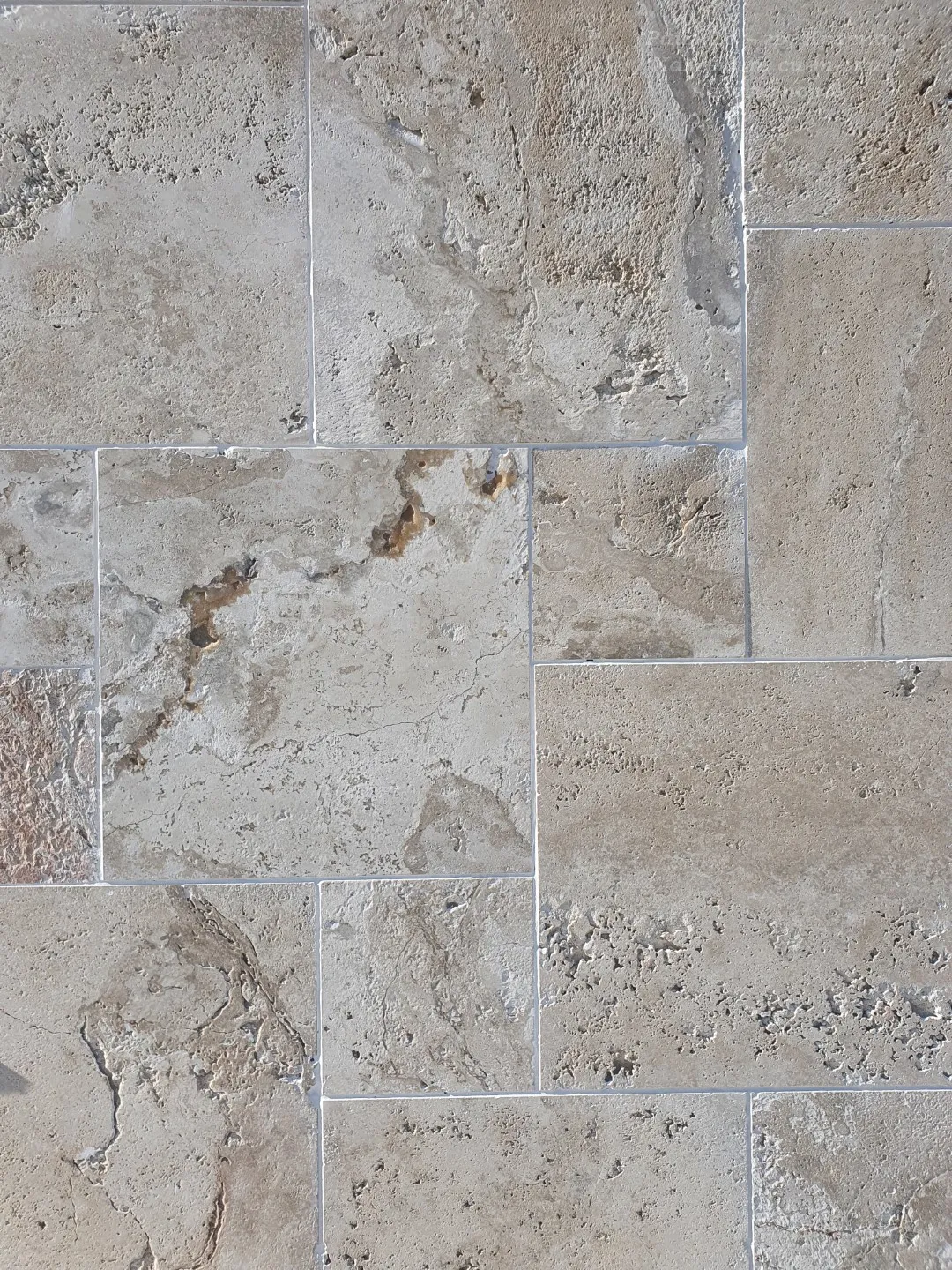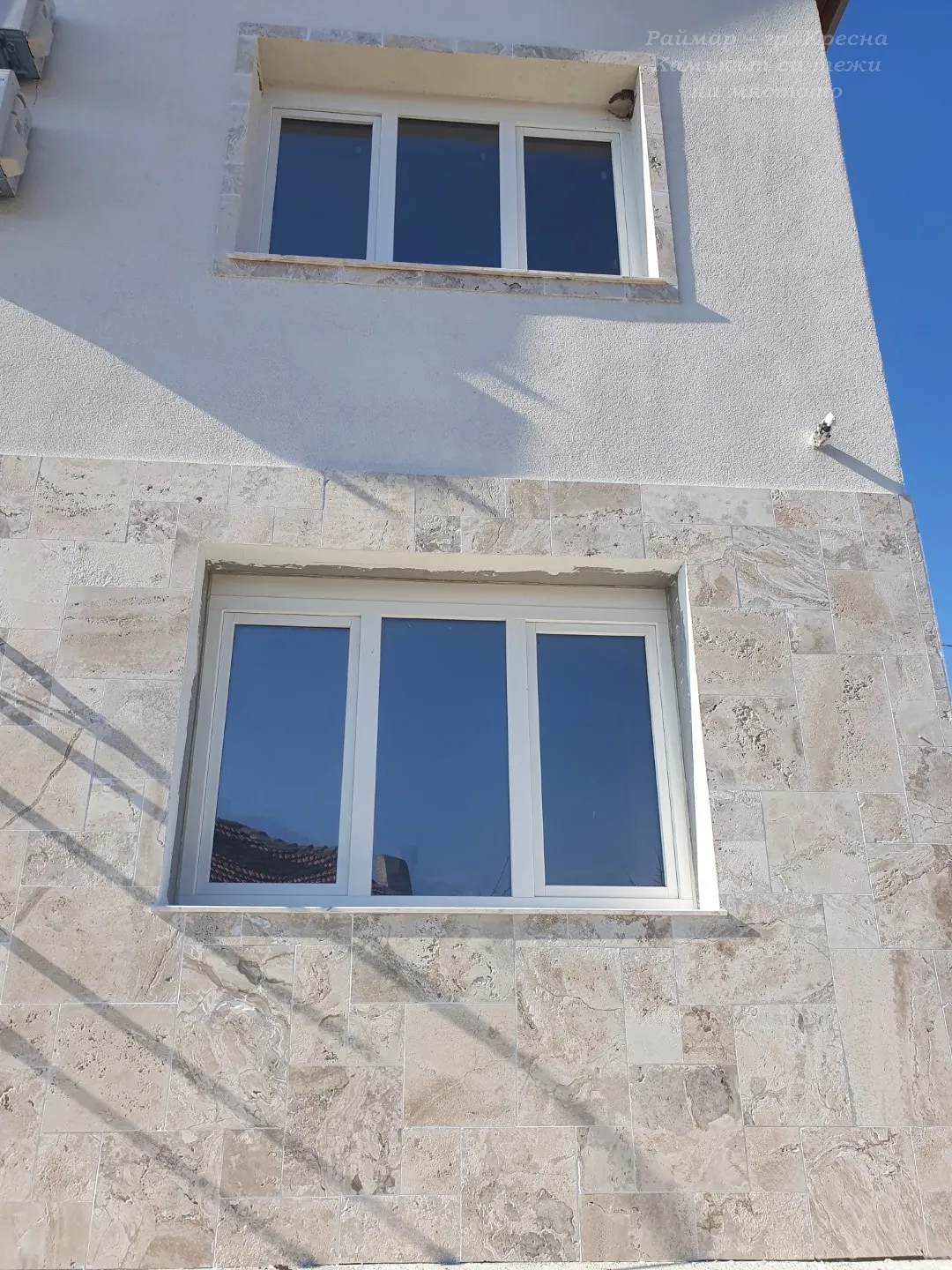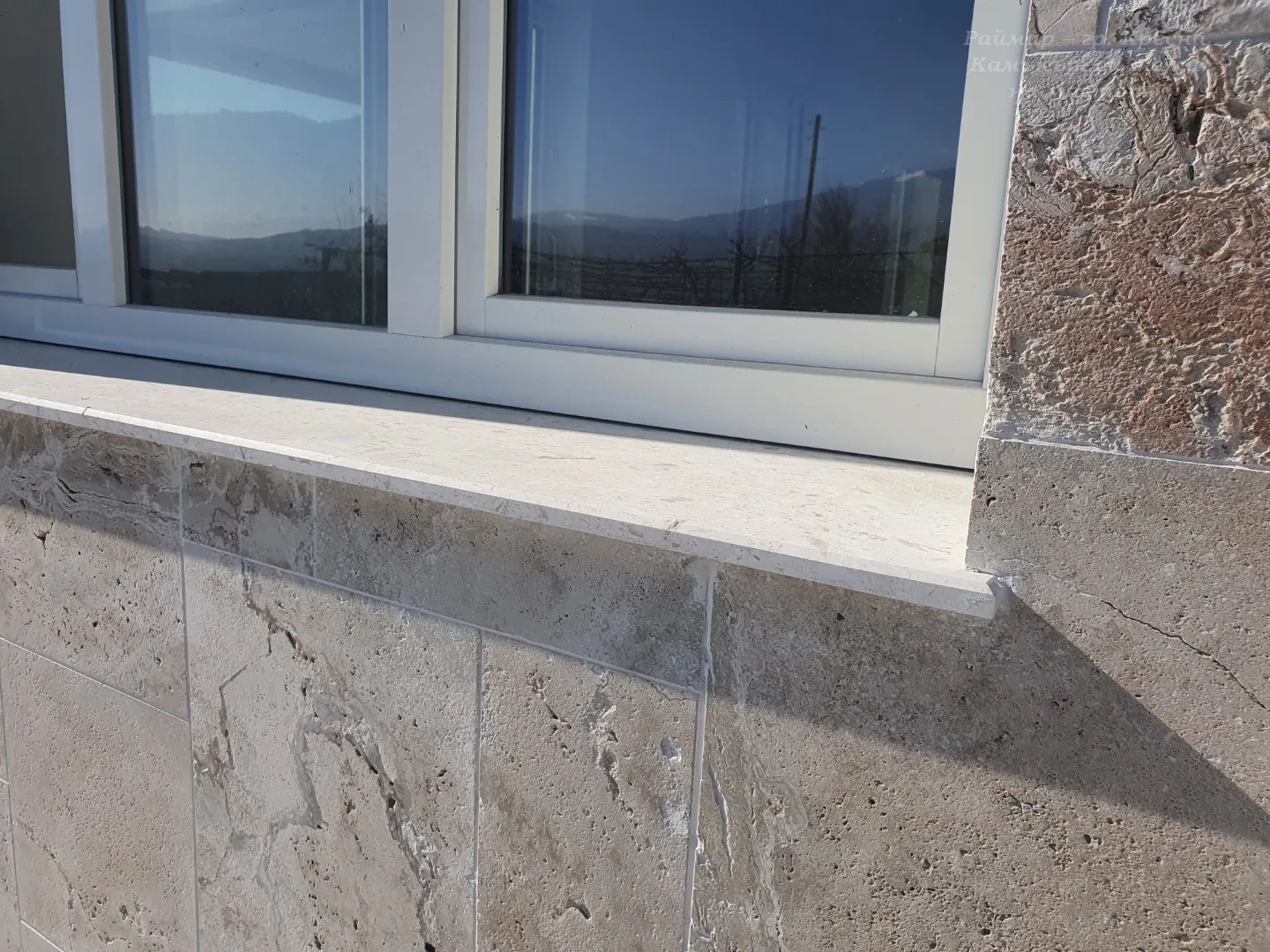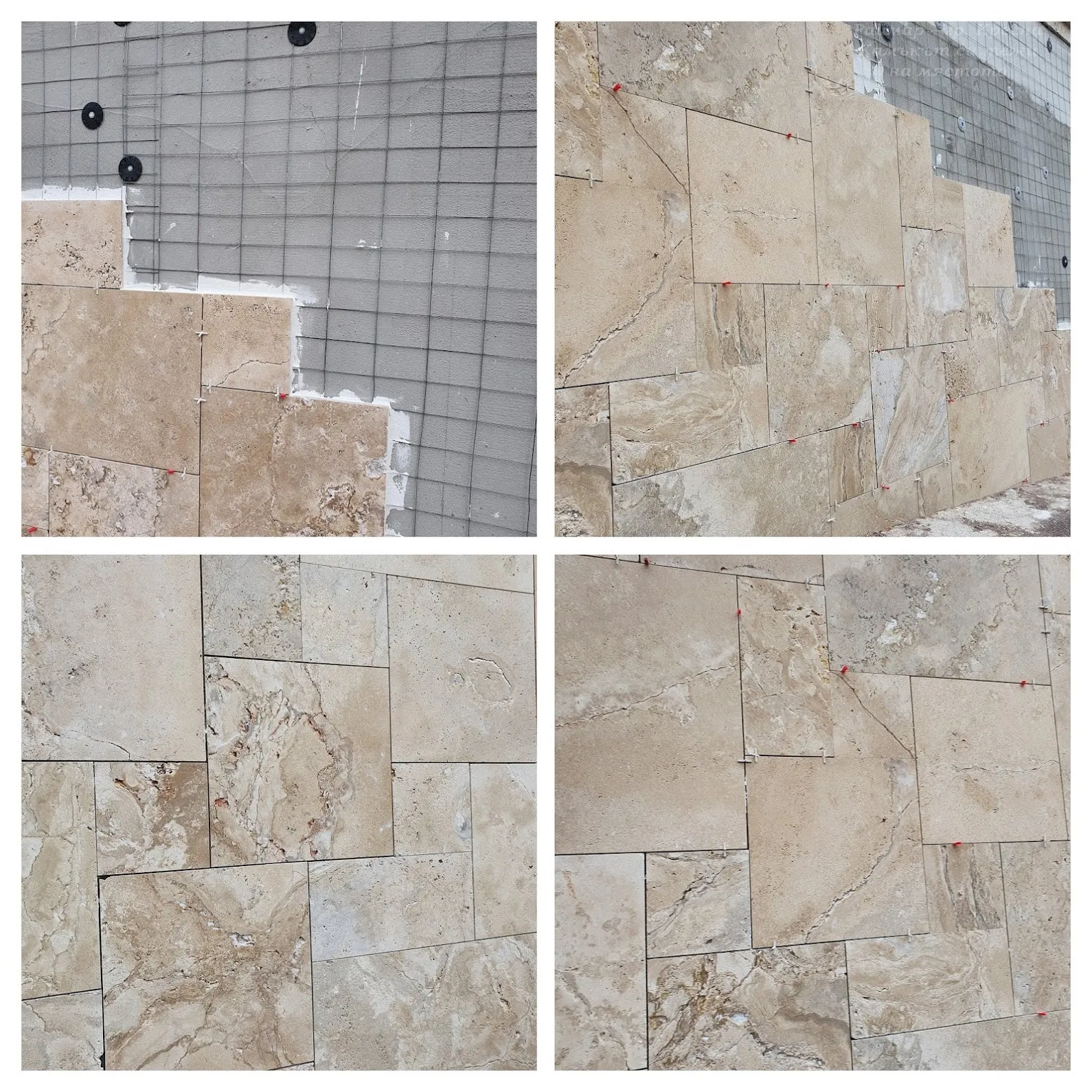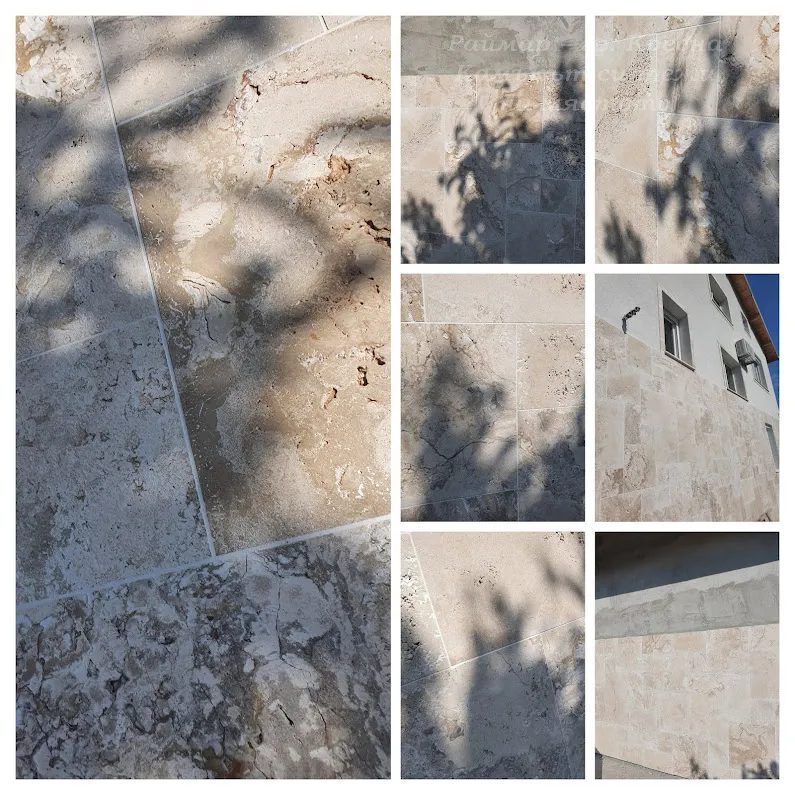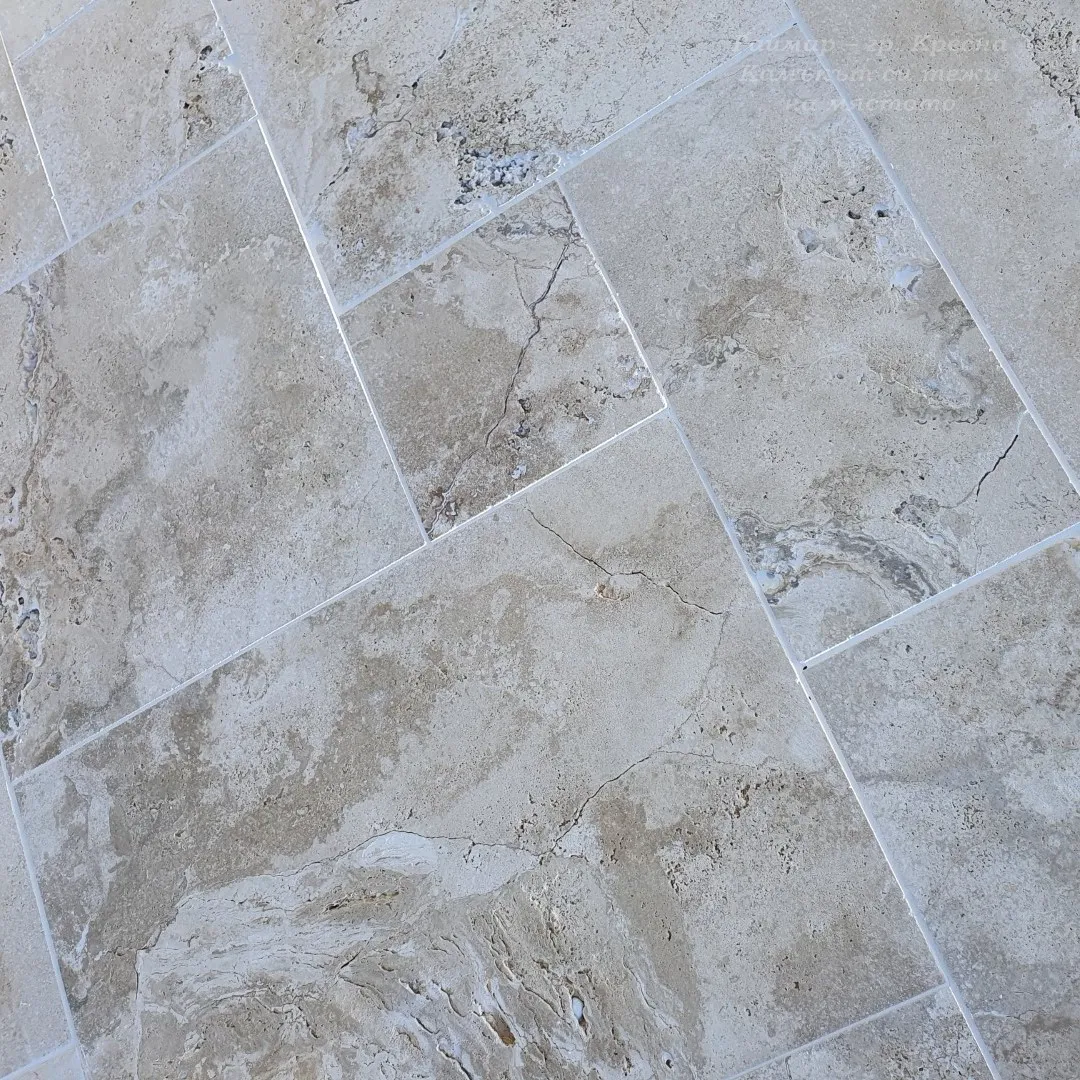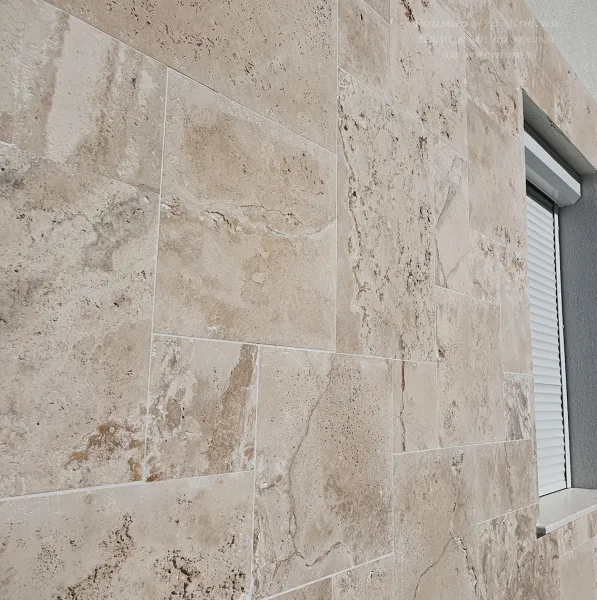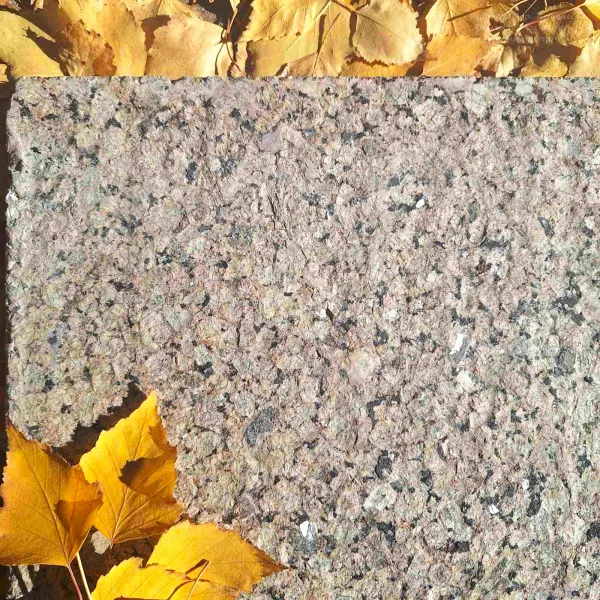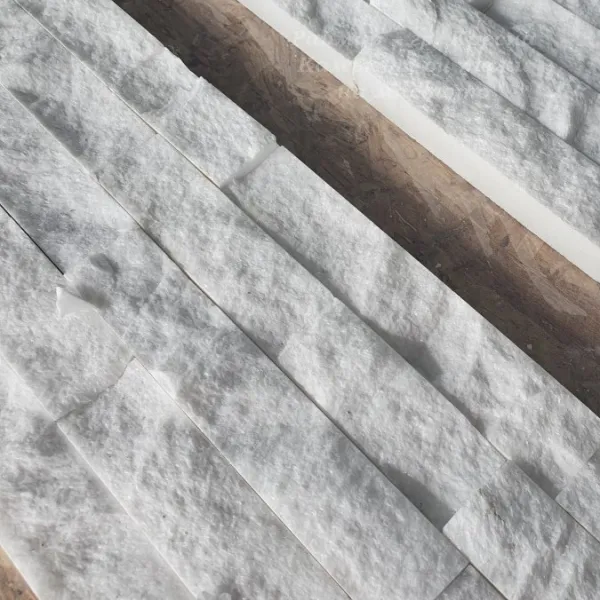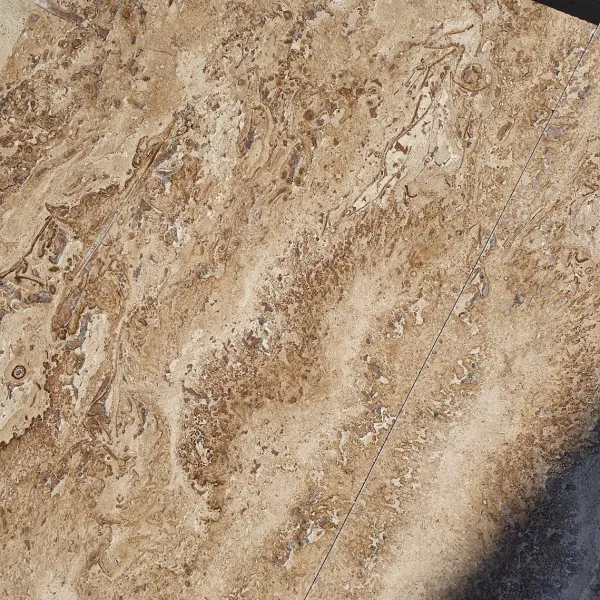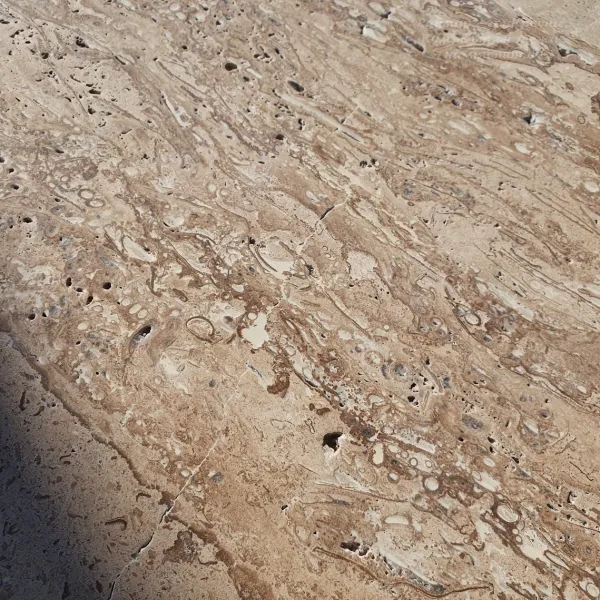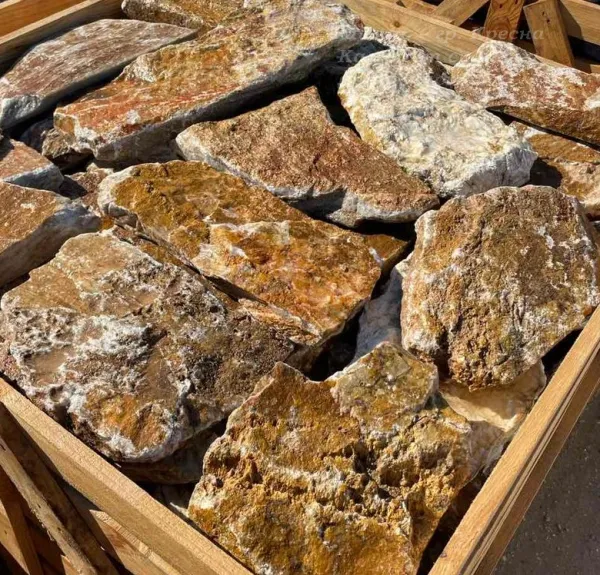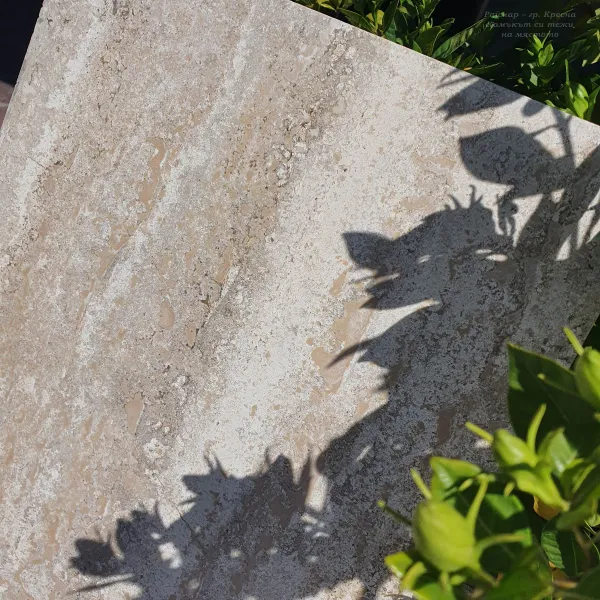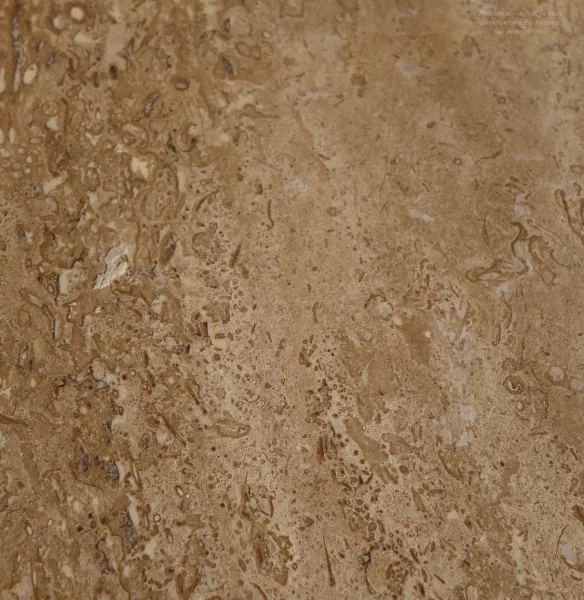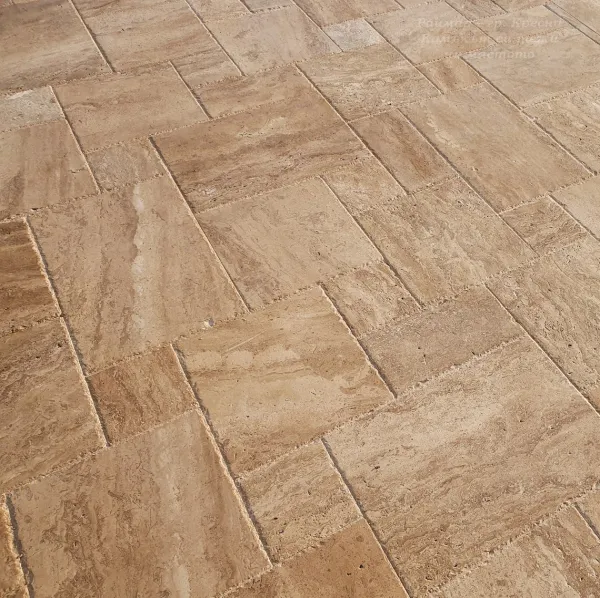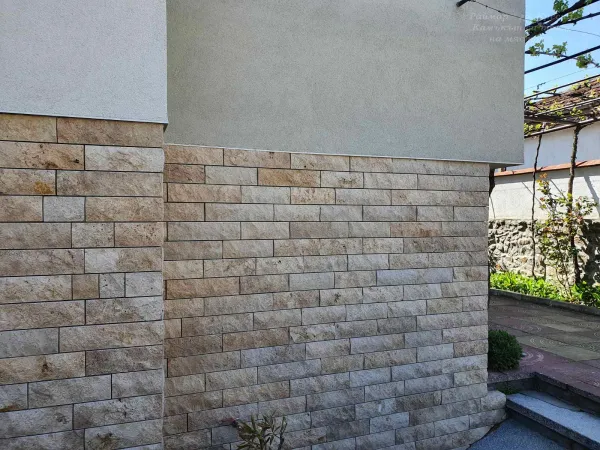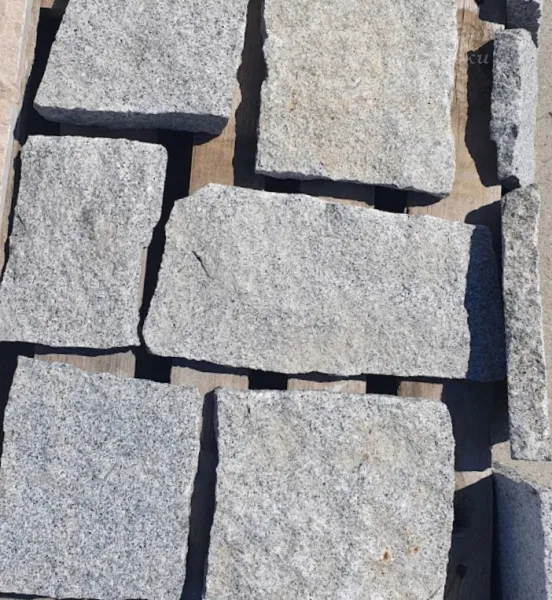| |
Available
|
|
Material
|
Travertine
|
|
Finish
|
Antique
|
|
Price / Unit
|
Price per 1 sq.m
|
| |
Pallet
|
|
Maximum pallet weight
|
25 sq.m=990 kg
|
|
Natural stone specifics
|
Possible deviations and variations in the colors and textures of the stone tiles are expected (resulting from the natural origin and formation of the stone).
|
| |
The cut to size stone tiles have nominal dimensions with a tolerance of up to ± 3mm (not calibrated).
|
| |
Always plan for a 10% advance on the net square footage
|
| |
Our products are handmade craftsmanship, made by artisans (stone masons).
|
| |
Pre-sorting by color or caliber, as well as preferences for nuances, patterns, or color variations in the stone, is not possible in advance.
|
|
Recommended adhesives
|
Cement adhesive class C2TES1: C - cementitious, 2 - improved strength properties, T - fixing, anti-slip, E - extended open time, S1 - elastic, for linear expansions (+ addition of TRAS against salt appearance/efflorescence)
|
|
Protection, mandatory impregnation, and maintenance (LTP or AKEMI)
|
For protection against water and grease absorption: Stone impregnator Mattstone H2O
|
| |
Always clean natural stone with pH-neutral products only (LTP or AKEMI).
|
| |
For color enhancement and protection: Wet effect impregnator (LTP or AKEMI).
|
Travertine is a natural stone that is very similar in composition, characteristics, and quality to marble. What's interesting about this material is the exceptional interaction of minerals with water over thousands of years. This accounts for the natural porosity of travertine, as well as the beautiful patterns, flecks, veins, and stripes.
Literally, the path of water can be traced with one's finger. Each travertine tile is unique and uniquely beautiful.
Florence Travertine is a type of travertine that exhibits strongly pronounced texture, colors, and dynamics. It particularly touches the hearts of people who love natural materials and appreciate perfection in natural imperfection.
The tiles of Florence Travertine come in standard French module sizes, packaged in sets.
1 module set = 0.742 sq.m and contains the following tile sizes with a thickness of 1.2 cm:
2 pcs.: 20.3 / 20.3 cm
1 pc.: 20.3 / 40.6 cm
2 pcs.: 40.6 / 40.6 cm
1 pc.: 61 / 40.6 cm
Florence Travertine is particularly suitable for decorative cladding of external or internal walls, fireplace cladding, for facades, plinths, fences, etc.
It combines well in color with marble window sills.
With the help of quality impregnators, you can seal the stone and make maintenance easier. When the stone is treated with an impregnator, water does not soak in but stays in droplets on the surface of the material.
Like every beautiful thing and like every natural material, natural stone requires proper care and maintenance.
We recommend: always treat stone surfaces with the right products for natural stone!
Regardless of the type of stone and its location, a single application of sealing agent will save you unnecessary worries and greatly facilitate maintenance.
Everything needs care. Use the high-quality German products from AKEMI, with which we have been working and recommending for years.
The treated impregnated surface does not allow water and contaminants to penetrate.
The protection with a sealer provides resistance against the destructive cycles of freezing and melting in external conditions. Water simply does not absorb when the stone surface is impregnated but forms droplets.
Depending on the type of sealer, it may not alter the external appearance of the stone or deepen its colors. Choose among the following types of sealers:
"Universal" sealer, which does not change the appearance of the stone and protects against water.
"Wet Effect" - a powerful sealer, like the Universal one, but with colors standing out in a more intense contrast.
"Stain-Free" is the best sealer: it protects against water and grease, also without changing the external appearance of the stone.
The frequency of reapplication depends on conditions and the usage of the stone tiles (whether it is flooring and traffic intensity). Usually, AKEMI recommends every 5 years for exterior stone, flooring + wet areas, and 10 years for interior stone (wall cladding).
How to apply the sealer? - It's easy, like child's play. The stone surface must be clean and very dry. The liquid is applied undiluted with a roller, sponge, or brush. If the surface is smooth polished or matte, a second step is required: the so-called "polishing" with a microfiber cloth for 20 minutes after applying the sealer. And we're done.
What cleaning products are used for natural stone? - Some types of stone, such as marble and travertine, are sensitive to acidic, very strong cleaning agents (e.g. bleach). We recommend: always clean your stone surfaces with a pH-neutral cleaning agent.
Ask us if you have any more questions! We are here and happy to assist.
How to breathe new life into natural stone in the exterior?
In a few steps, natural stone can be restored to its original state, in its full brilliance and aesthetics.
First and foremost is regular cleaning and at least once a year thorough washing with a pressure washer. This is particularly important for our outdoor furniture products (barbecues, sinks, tables, countertops, and pavement tiles).
Once the surfaces are clean and dry, do not forget to apply a sealer.
Tip: Protect your outdoor flooring from furniture that may rust.
For specific stains such as oily spots, efflorescence (cement milk), mold, cement residues, or grout mixtures, silicones, or paints, it is best to contact us directly for consultation. Count on us; we will provide you with the right products to address the issue, wherever and whenever possible.
The durability of natural stone depends on the specific porosity of the stone type and its water absorption levels. For example, the porosity of granite and gneiss is around 1%, while sandstone has over 20%.
The biggest destructive enemies for items, coverings, and pavements exposed year-round are the sun and freeze/thaw cycles. When the stone is sealed/waterproof, you will receive maximum protection and much easier maintenance.
In severe cases of areas with contamination, the non-polished stone surface can be treated with an angle grinder and fine sandpapers. This process removes the top layer of the stone, making it look like new. (The process is similar to sanding wooden parquet.)
Stone is the best friend of the yard and garden. With love for beautiful, natural materials and proper care, the stone will continue to bring you joy for many years to come.




 Български
Български




